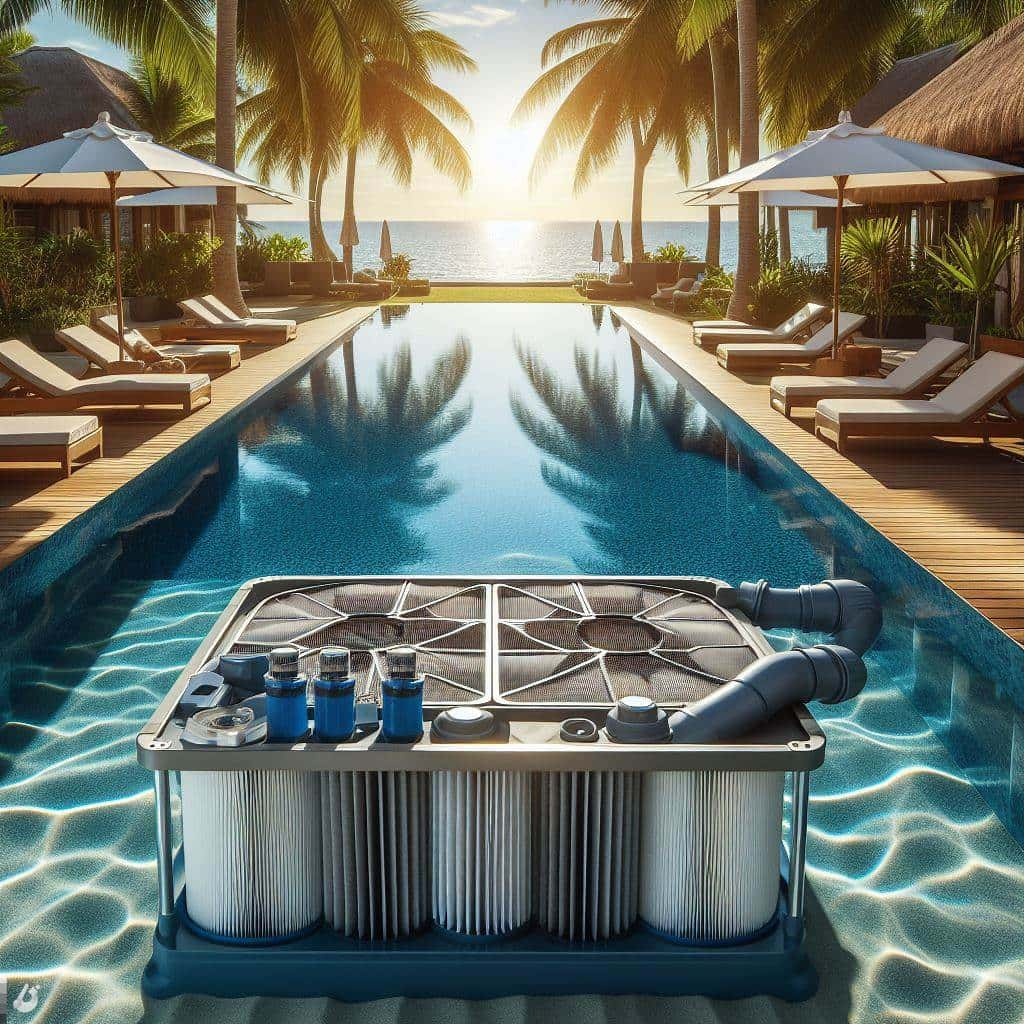Swimming pools are a source of relaxation and enjoyment, but they also require regular maintenance to ensure water quality and safety. Pool sand filters play a crucial role in keeping pool water clean by trapping impurities, but they can be water-intensive if not used efficiently. In this article, we’ll explore innovative water-saving technologies and strategies for pool sand filters, aiming to reduce water consumption while maintaining effective filtration.

Understanding Pool Sand Filters and Water Consumption
Pool sand filters operate by passing water through a tank filled with specially graded sand, where impurities are trapped and filtered out. While effective in maintaining water quality, traditional sand filters can be water-intensive due to backwashing, a process used to clean the filter media by reversing the water flow. Backwashing typically requires a significant amount of water, contributing to overall water consumption in pool maintenance.
High-Efficiency Variable Speed Pumps
Upgrading to high-efficiency variable speed pumps can significantly reduce water consumption in pool filtration systems. These pumps allow users to adjust the pump speed according to filtration needs, minimizing water flow rates during low-demand periods and optimizing energy efficiency. By operating at lower speeds, variable speed pumps reduce the frequency of backwashing, resulting in substantial water savings over time.
Advanced Filtration Media
Innovative filtration media, such as recycled glass or zeolite, offer improved filtration efficiency and water conservation benefits compared to traditional sand. Recycled glass media, made from crushed recycled glass, provides superior filtration performance while conserving water. Similarly, zeolite, a natural mineral with high filtration capacity, requires less frequent backwashing, leading to reduced water usage in pool maintenance.
Backwash Recycling Systems
Implementing backwash recycling systems can help minimize water wastage during the backwashing process. These systems collect backwash water and divert it to a holding tank or filtration system for treatment and reuse. Treated backwash water can then be reintroduced into the pool or used for non-potable purposes, such as irrigation or landscape maintenance. By recycling backwash water, pool owners can significantly reduce water consumption and conserve valuable resources.
Automatic Backwash Controllers
Automatic backwash controllers offer precise control over backwashing cycles, optimizing water usage and filtration efficiency. These controllers monitor pressure differential across the filter media and initiate backwashing only when necessary, based on predetermined criteria. By minimizing unnecessary backwashing, automatic controllers help conserve water and extend the lifespan of filter media, reducing maintenance costs in the long run.
Regular Maintenance and Inspection
Routine maintenance and inspection of pool sand filters are essential to ensure optimal performance and water conservation. Regularly cleaning filter media, inspecting for leaks or damage, and replacing worn components contribute to efficient filtration and minimize water loss. Additionally, addressing any issues promptly can prevent water wastage and prolong the lifespan of the filtration system.
Proper Water Chemistry Management
Maintaining balanced water chemistry is crucial for reducing water consumption in pool filtration. Properly balanced water helps prevent the accumulation of impurities and reduces the frequency of backwashing. Regularly testing and adjusting pH, alkalinity, and sanitizer levels contribute to efficient filtration and minimize water wastage in pool maintenance.
Conclusion
Water-saving technologies and strategies for pool sand filters offer practical solutions to reduce water consumption and promote sustainable pool maintenance practices. From high-efficiency variable speed pumps to advanced filtration media and backwash recycling systems, innovative approaches contribute to water conservation while maintaining effective filtration. By implementing these technologies and adopting proper maintenance practices, pool owners can minimize water wastage, conserve resources, and enjoy clean and sustainable swimming environments for years to come.
